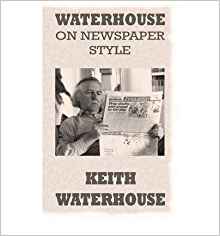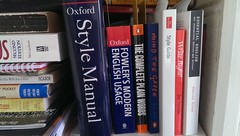This book may be thirty years old, but its advice is still pertinent. If you want to have a blitz or crackdown against, or shake-up of, bad writing (all examples of 'tabloidese'), then this is the book for you.
Read MoreReview: Waterhouse on newspaper style









